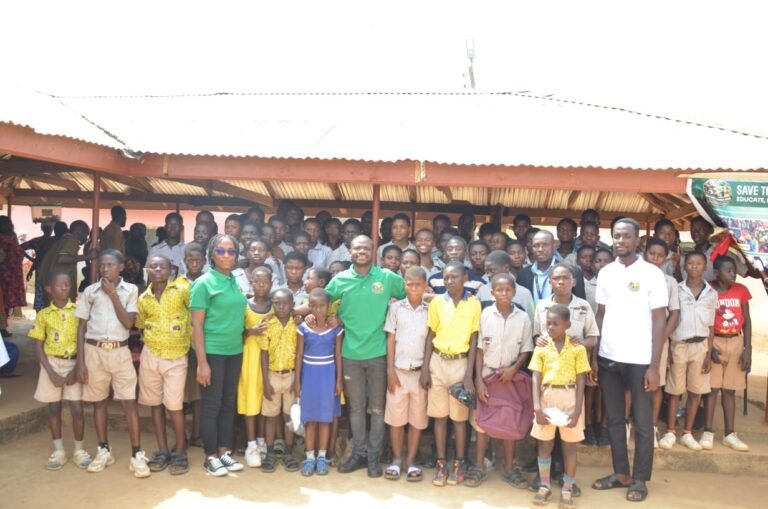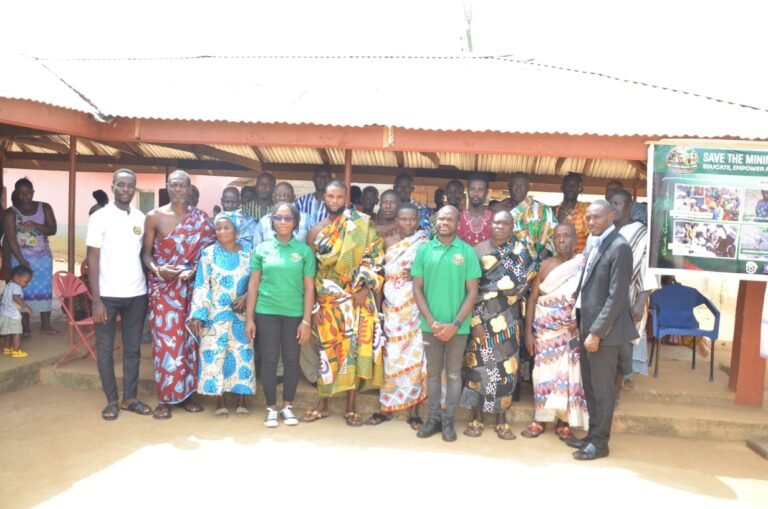
Mawusi Nudekor Awity, Outgoing Director General of Ghana TVET
By Bright Philip Donkor
The outgoing Director General of the Ghana Technical and Vocational Education and Training (GTVET) Service, Mawusi Nudekor Awity, has outlined a forward-looking vision that includes the establishment of, at least, three incubation centres within the next three to five years.
She shared this vision during her official retirement announcement at a send-off and book launch event held at the Berliner Platz Event Centre in Adjiringanor, Accra.
Madam Nudekor stated that these centres would act as innovation hubs, designed to nurture creativity and entrepreneurship among Ghanaians. “The goal is to create environments where budding innovators receive the support and resources necessary to transform their ideas into concrete solutions,” she explained.
 She indicated that these incubation centres would play a critical role in contributing to Ghana’s economic growth by fostering innovation and supporting emerging talent. She emphasised her confidence that the vision of these centres would be realized through the ongoing dedication of the Ghana TVET Service team, industry partners, development organizations, and government support.
She indicated that these incubation centres would play a critical role in contributing to Ghana’s economic growth by fostering innovation and supporting emerging talent. She emphasised her confidence that the vision of these centres would be realized through the ongoing dedication of the Ghana TVET Service team, industry partners, development organizations, and government support.
She expressed her eagerness to see these initiatives flourish, reinforcing Ghana’s status as a leading hub for technical and vocational education in Africa.
Assurance
She assured that she would continue to advocate TVET. “I am stepping down, but my spirit remains with Ghana TVET Service. The journey ahead will undoubtedly bring new challenges and opportunities, but I am confident that with your unwavering dedication and passion, TVET will continue to thrive and achieve even greater milestones,” she added.
“Today marks a significant milestone in my career as I bid farewell to an institution that has been my home for many years. It is with a mix of emotions that I stand before you to reflect on my journey as the Director-General of Ghana TVET Service and to express my deepest gratitude to His Excellency Nana Addo Dankwa Akufo-Addo for his trust and support,” she said.
She shared insights into her career and the lasting impact of her leadership on vocational training in Ghana. She emphasised her profound dedication to advancing the field of vocational education and her commitment to enhancing the quality and relevance of technical training in the country.

Reflections
She remarked: “During my time at NVTI and later at the Ghana TVET Service, I focused on modernizing infrastructure, introducing innovative training programmes, and strengthening industry partnerships,” she added. She noted among the key accomplishments of Mawusi’s tenure was her work on increasing gender inclusivity within vocational training.
“A major aspect of my work was enhancing gender inclusivity. We made concerted efforts to bring more women into traditionally male-dominated fields, empowering them with the skills and confidence needed to excel. At the same time, we supported men in pursuing careers in fields traditionally dominated by women, breaking down stereotypes and fostering a more inclusive environment,” she added.
 This dual approach, Mawusi explained, enriched the diversity and skill set within the TVET community, promoting gender equality and creating new opportunities for all. She further highlighted the positive response to these efforts, evidenced by the increasing number of Junior High School graduates entering the TVET space.
This dual approach, Mawusi explained, enriched the diversity and skill set within the TVET community, promoting gender equality and creating new opportunities for all. She further highlighted the positive response to these efforts, evidenced by the increasing number of Junior High School graduates entering the TVET space.
“Our efforts have been met with great enthusiasm. We currently have over 61,000 graduates, and we hope to surpass 70,000 soon. This growth signifies a promising future for TVET in Ghana, where young men and women are being equipped with the skills needed to thrive in a dynamic job market,” she added.
Gratitude
She expressed her deep gratitude for the privilege of serving as Director-General, highlighting the honour of working alongside talented and dedicated individuals. She called on stakeholders to remain united in their efforts to build a brighter future for TVET in Ghana.
“I am excited about what lies ahead and am grateful for the opportunity to contribute to shaping the future of technical and vocational education in our beloved country. This role was not merely a position; it was a calling, and indeed, it was a calling…,” she added.





